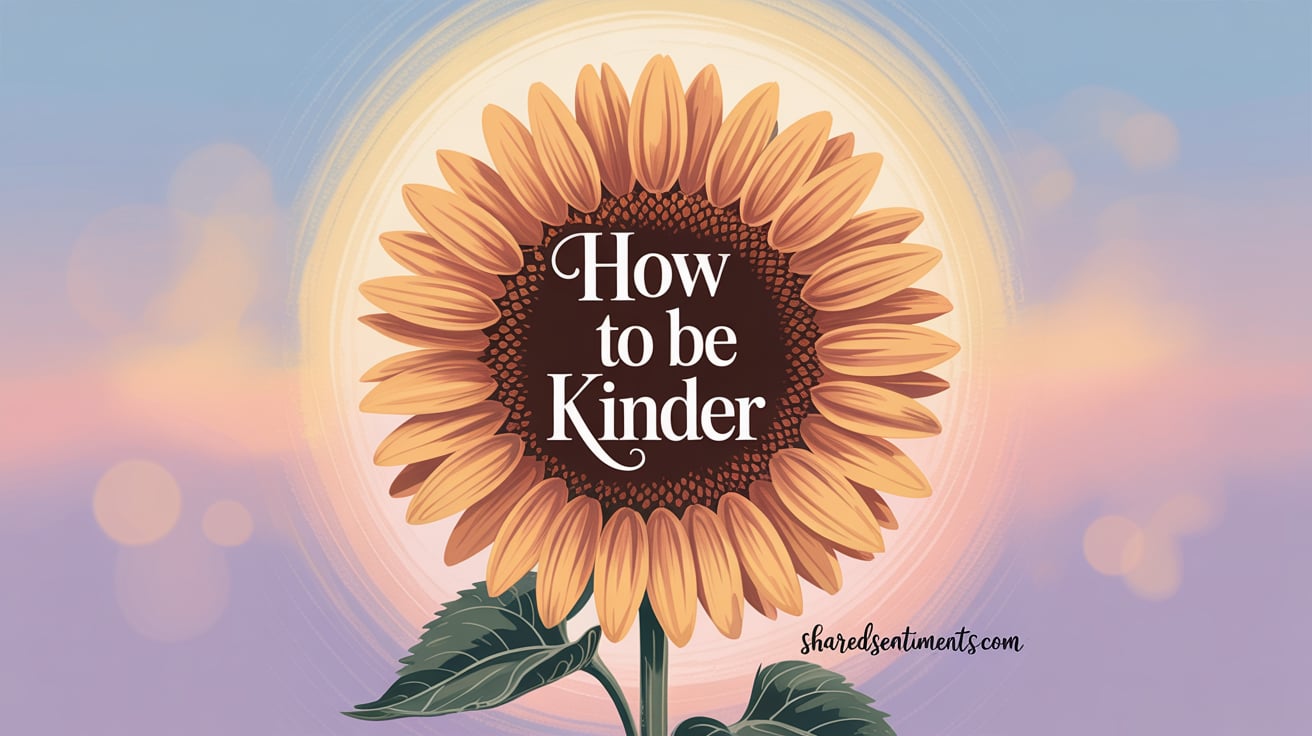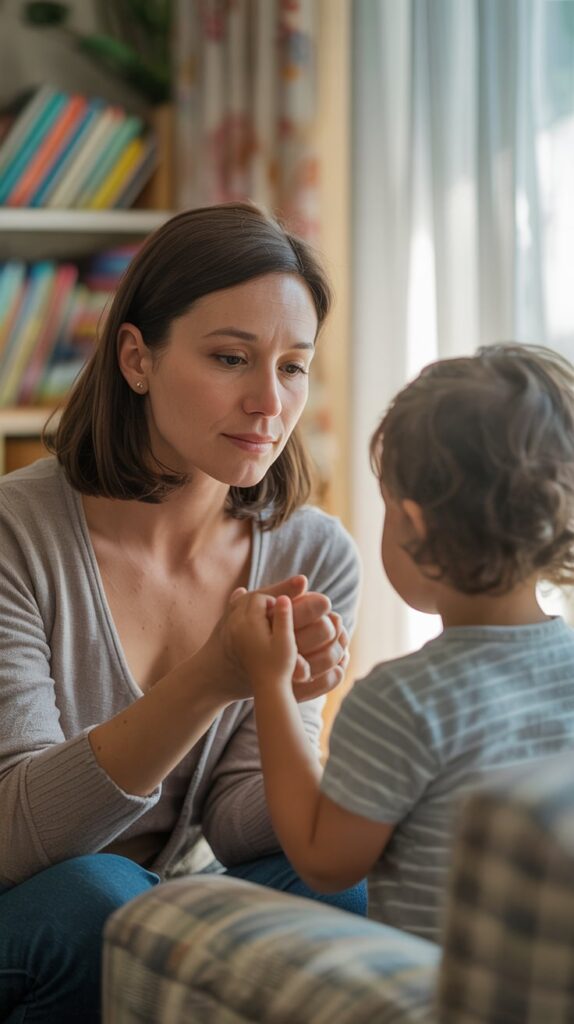How to Be Kinder: 10 Simple Ways I’ve Learned to Show More Care Every Day

This is a short guide on How to Be Kinder. I know it isn’t always simple, so I try to be steady instead of chasing some idea of perfection.
But you might wonder why you should even bother to be kinder. What’s the reason? Why not just keep living the way you always have?
Three things come to mind for me.
When you act with kindness toward others, you often start treating yourself better too. It might feel odd at first, but I’ve seen this happen in my own life.
You usually get back what you put out there. Sure, some people will stay bitter or never say thank you no matter how you treat them. But most people will, over time, reflect your kindness back to you. The problem is, many folks won’t take that first step. If you want something to shift, you need to take action yourself. Waiting for someone else to do it might leave you stuck forever.
Being kinder also helps make your own world and the bigger world around you a better place to be.
1. Listen With Your Full Attention
When I started really listening to people, not just nodding while my mind wandered, I noticed how much it mattered.
I put my phone down, made eye contact, and focused on the words they said.
It sounds simple, but most of us don’t do it often.
When someone feels heard, they feel valued.
If you want to practice kindness, start by giving people the respect of your full attention.
Even a few minutes of focused listening can build trust and connection.
2. Give Compliments You Truly Mean
I used to hold back compliments because I worried they’d sound cheesy.
But when I began sharing sincere words—like telling a coworker I admired their patience or a friend I loved their laugh—I saw how it lit them up.
You don’t have to flatter everyone you meet.
Just notice the good things about people and say them out loud.
A real compliment costs you nothing, but it can change someone’s whole day.
3. Offer Help Before You’re Asked
Sometimes people struggle quietly because they don’t want to bother anyone.
I’ve learned to pay attention to signs that someone might need help, even if they don’t ask.
When I see a friend looking overwhelmed, I offer to pick up groceries or watch their kids for an hour.
If a coworker looks stressed, I ask if there’s something I can take off their plate.
Offering help without waiting to be asked shows you care and want to share the load.
4. Be Patient When People Make Mistakes
This one was hard for me.
I used to get frustrated easily when someone messed up or took longer than I thought they should.
But then I thought about all the times I’ve needed patience from others.
Now I try to take a deep breath and remind myself that everyone learns at their own pace.
Kindness means giving people room to be human.
When you respond with patience instead of irritation, you help them feel safe to grow.
5. Use Kind Words, Even When You’re Upset

I won’t pretend I never get angry.
But I’ve seen how yelling or snapping doesn’t solve anything—it just hurts feelings and creates distance.
When I feel upset, I pause and choose my words carefully.
I say what I need to say without insults or sarcasm.
This doesn’t mean you have to hide your feelings.
It just means you can share them in a way that doesn’t leave lasting wounds.
Kindness shows up most when it’s hardest to practice.
6. Check In With People Regularly
I used to assume that if someone needed me, they’d reach out.
But I’ve learned that many people won’t ask for support, even if they feel lonely.
Now I make it a habit to check in.
I send a short text or leave a voice message just to say I’m thinking of them.
Sometimes that small gesture makes someone feel remembered and less alone.
It only takes a minute to remind people you care.
7. Respect People’s Differences
We don’t all see the world the same way, and that’s okay.
I’ve learned to be kinder by letting go of the idea that everyone has to agree with me.
When I meet someone with different beliefs or experiences, I try to be curious instead of judgmental.
I ask questions and really listen.
Even if I don’t agree, I can respect their right to their own views.
Kindness grows when we honor each other’s differences instead of trying to change them.
8. Show Gratitude Often
There was a time when I took a lot of things for granted.
I didn’t always say thank you for the small acts of thoughtfulness people showed me.
Now I make a point to express gratitude.
When someone helps me or does something considerate, I tell them I appreciate it.
Thank you notes, text messages, or simple words in person go a long way.
Gratitude reminds others that their kindness matters and encourages them to keep being generous.
9. Be Kind to Yourself Too
This one surprised me.
I thought being kinder was all about how I treated others, but I learned it also means treating myself with care.
I started talking to myself the way I’d talk to a friend—gently, without harsh criticism.
When I mess up, I remind myself it’s okay to be imperfect.
When I’m tired, I let myself rest without guilt.
Being kind to myself has made it easier to be kind to everyone else because I’m not running on empty.
10. Do Small Acts Without Expecting Credit
I used to think I had to do big gestures to prove I was kind.
But small, quiet acts matter just as much.
Holding the door, letting someone go ahead in line, picking up trash on the sidewalk, or leaving an encouraging note.
These moments don’t get applause, but they create ripples of kindness in the world.
I’ve found that when I do them without expecting anything back, it feels more genuine and satisfying.
Final Thought
I know it can feel overwhelming to try to change how you treat people, but you don’t have to be perfect.
Start with one or two of these ideas and see how they feel.
Kindness grows when we practice it a little at a time.
If you ever wonder how to be kinder, remember it often starts with noticing what people need and responding with warmth instead of judgment.
I’ve seen my relationships improve and my own heart feel lighter since I began paying attention to these simple ways of showing care.
You don’t need any special skills or a big plan to start being kinder.
You just need a willingness to show up and a little courage to act with compassion, even when it feels awkward.
I hope some of these steps inspire you to try something new.
If you do, you might discover that kindness has a way of coming back to you when you least expect it.







